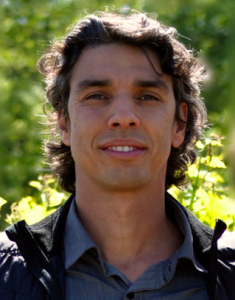Lucas Silva

- Email: lsilva7@uoregon.edu
-
Professor
- Office: 248 Columbia Hall
- Phone: 530-601-0410
- Lab:
- Lab phone:
- Lab Website
Research Interests
Research in the Silva group integrates concepts and analytical tools from terrestrial ecology, plant physiology, and biogeochemistry to address emerging issues in environmental sustainability. Specifically, we seek a quantitative understanding of soil-plant-atmosphere (SPA) interactions as a means to determine the impact of climate change on terrestrial ecosystems and to mitigate human-induced alterations of carbon, water, and nutrient cycles. Our integrative approach blends chemical characterization and isotopic measurements of natural environmental archives (e.g. tree rings, soils, and speleothems), lab- and field-based experiments, and statistical models used to scale SPA-mediated processes from molecules to landscapes.
Selected Publications
Silva et al. (2016) Tree growth acceleration and expansion of alpine forests: The synergistic effect of atmospheric and edaphic change. Science Advances 2 (8), e1501302
Silva et al. (2015) Isotopic and nutritional evidence for species- and site-specific responses to N deposition and elevated CO2 in temperate forests. Journal of Geophysical Research: Biogeosciences. 120 (6), 1110–1123
Silva et al. (2015) Iron-mediated stabilization of soil carbon amplifies the benefits of ecological restoration in degraded lands. Ecological Applications 25 (5), 1226–1234
Silva (2015) From air to land: understanding water resources through plant-based multidisciplinary research. Trends in Plant Sciences 20 (7), 399–401
Silva (2014) Importance of climate-driven forest–savanna biome shifts in anthropological and ecological research. Proceedings of the National Academy of Sciences of the United States of America 111 (37), E3831–E3832
Silva & Anand (2013) Probing for the influence of atmospheric CO2 and climate change on forest ecosystems across biomes 22 (1), 83–92
Teaching
Ecological Biogeochemistry
Global Environmental Change
Interdisciplinary Climate Change Research